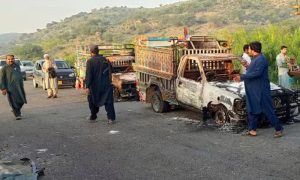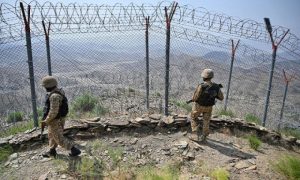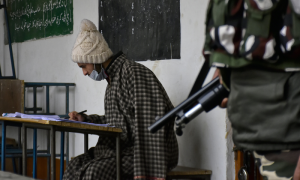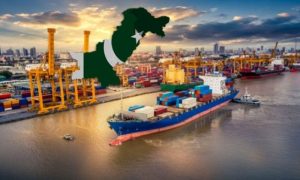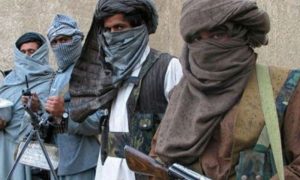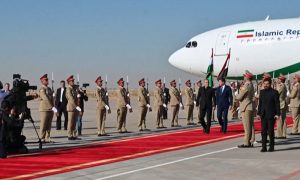Some three years back, the world witnessed the fall of Kabul into the hands of the Taliban within days of the withdrawal of the US-led foreign troops from Afghanistan, The US-West-backed government of Dr Ashraf Ghani collapsed in no time, providing an opportunity to the Taliban to step in and take control of the government.
The international community and regional countries cautiously reacted with little optimism to end the violence and have a national government in place. However, nothing happened, and no country has recognized the interim government of the Taliban or what they self-proclaimed as the Islamic Emirate of Afghanistan. The reconciliation process to form an ‘all-inclusive Afghan government’ remained a hazy mirage. The Taliban claims it represents all segments of the country, and it is an internal matter of the Afghans.
An all-inclusive or broad-based government was an integral part of the Doha Peace Agreement 2020. Representatives of the political parties and different ethnic groups started the intra-Afghan dialogue, but it ended without any results. Once the Taliban took control of the government, the intra-Afghan dialogue ended. The international community is pressing the Taliban on the subject, but seems without any outcome.
The regional countries including China, Russia, and Pakistan have been taking steps to have a dialogue with the Taliban through political channels. However, the unchanged stance of Kabul makes it hard to keep the process forward. The Taliban does not agree to share power with other groups and political forces.
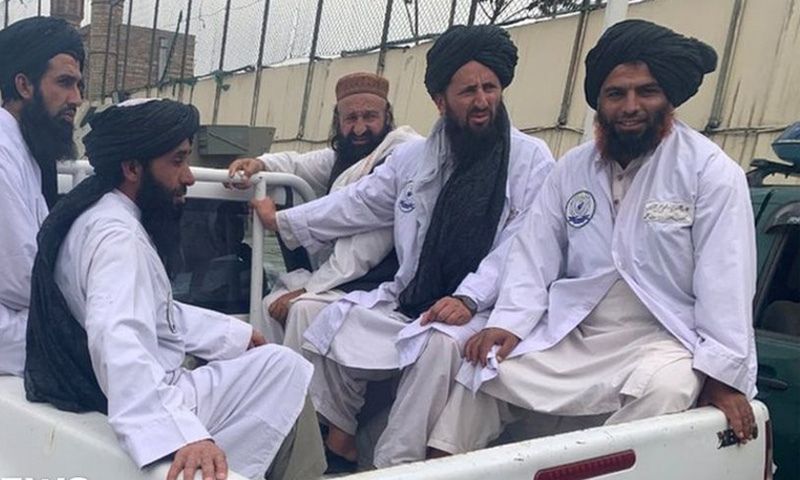
Regrouping of the Terrorist Outfits
The Taliban categorically agreed in the Doha Peace Deal that it would not allow any terrorist groups to use its land against the US or its allies. However, reports emerging from Afghanistan revealed that many armed groups have been getting training and reorganizing. The UN monitoring teams and US agencies have reported the presence of global militant groups is posing a serious threat to regional security and stability.
The incidents of terrorism increased manifolds in Pakistan since the Taliban seized power in Kabul in August 2021. A full-fledged war is imposed on Pakistan in parts of Khyber Pakhtunkhwa and Baluchistan.
Islamabad has been asking Kabul to take action against the militant groups carrying out terrorist attacks on Pakistani forces. However, the usual response from the Taliban is that the Afghan land was not being used against other countries. Pakistan says it has provided ‘evidence’ to the Taliban about the presence of the hideouts of Pakistani terrorist groups in Afghanistan, and even the involvement of Afghan nationals in the terrorist attacks on the security forces.
The Counter Terrorism Department and Intelligence Agencies have investigated many deadly attacks and found links with the terrorist groups based in Afghanistan. The International community is showing concerns about the growing terrorist threat from Afghanistan.
Al-Qaeda Subcontinent and other allied groups have been coordinating with each other in Afghanistan under the nose of the Taliban. There are two ways to look into it, either the Taliban is unable to take action against such groups or it is backing them. Islamic State of Khorasan Province or the local chapter of Daesh is a threat to the region and international peace. The Taliban seems serious about fighting the IS-KP as it is a threat to its rule. But it turns a deaf ear to other affiliated groups.
This growing terrorist threat is another hurdle in the way of the legitimacy of the Taliban government. It needs serious business if the Taliban wants to have their government recognized and the economic sanctions could be lifted. The common Afghans have been suffering from the policies of the Taliban. The bilateral relations between Pakistan and Afghanistan are at their lowest due to the cross-border terrorist attacks.
Ban on Girls’ Right to Education
The UN Agency -UNESCO- in a recent report claims that 1.4 million girls aged 12 and above have been out of school since the Taliban imposed a ban on girls’ education. The Taliban had pledged that the girls’ school would be reopened soon. However, there is no chance of lifting the ban on girls’ education.
Renowned Muslim scholars have been asking the Taliban leadership to allow girls’ right to education. Afghanistan is the only country in the world where secondary and higher education is banned. Whenever the Taliban officials are asked about the lifting of the ban, they simply reply that they are devising a mechanism to make it in line with the teachings of Islam.
Restrictions on Women
Afghan women, which makes up half of the population, have been asked to stay back at home and avoid going outside without male members. Women employees were not allowed to continue their jobs. Due to the continued war and violence in Afghanistan, women and children have been worst-hit or mostly the only bread-earners of their families.
Reports coming from Afghanistan revealed there are some differences among the senior leaders of the Taliban on the subject of girls’ education and restrictions on women.
The International community, especially the Muslim leaders, should launch extensive efforts through active diplomatic channels to help take Afghanistan out of the crisis and make it a responsible member of the international community.
Afghanistan should not be allowed to become a serious challenge and concern for the global community. The region needs peace stability and economic connectivity through Pakistan and Afghanistan. The major responsibility lies on the Taliban to put the war-ravaged country on the path of prosperity and development.













